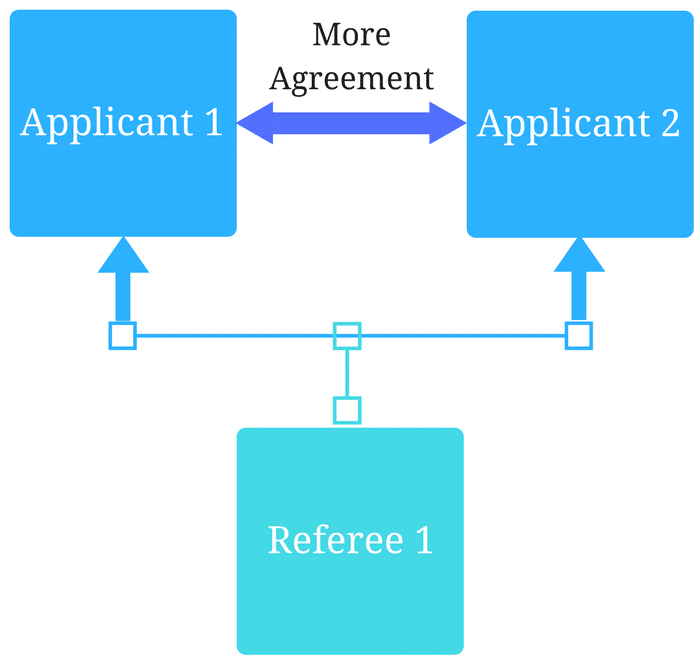The Growing Role of Holistic Admissions: How Schools Are Embracing a Broader View of Success

October 1, 2024
Holistic admissions are gaining traction in higher education. Schools are moving beyond the traditional reliance on GPA and standardized test scores, opting instead to evaluate the whole student.
This approach values not just academic success, but also personal qualities like leadership, empathy, and teamwork. The goal of holistic admissions is to select candidates who bring varied experiences and strengths that will contribute to the program and thrive in their future careers.
This week on the Holistic Success Show, we welcome Jenna Downey, a Holistic Success Advisor at Acuity Insights. With extensive experience as an admissions professional at Dalhousie University, she has helped programs transition to an admissions process that evaluates students based on both academic and non-academic attributes.
Jenna shares her insights on what holistic admissions means, the challenges schools face when adopting this approach, and practical tips for making the shift.
What is holistic admissions?
At its core, holistic admissions is about examining each applicant in a well-rounded way, considering multiple data points. While GPA and traditional test scores have long been the standard for admissions decisions, they often don’t capture the full picture of a student’s potential.
Holistic admission strategies allow schools to assess non-cognitive skills such as leadership, communication, and resilience. These are traits that contribute to long-term success, both in academic settings and in the professional world.
The aim is to view each applicant as a unique individual. A holistic approach considers factors such as work experience, volunteer activities, and personal achievements that reflect qualities like empathy and problem-solving.
By adopting this broader lens, schools can better identify well-rounded candidates who are likely to excel in their programs and beyond.
How are different programs adopting holistic admissions?
Each educational program will have unique requirements, which means the way holistic admissions are applied can differ.
For instance, fields like healthcare, where interpersonal skills are critical, have a long history of using holistic admissions. On the other hand, programs like engineering are newer to this approach, where the focus may still be more on technical skills.
Despite these differences, schools share a desire to widen access and ensure they’re admitting students who are more than just test scores.
Schools are beginning to recognize the importance of looking at a student’s full story—both the cognitive and non-cognitive aspects—to find candidates who will thrive in their environments.
What are the challenges of implementing holistic admissions?
Implementing holistic admissions can be challenging.
One major obstacle is gathering and analyzing the right data to inform changes in the admissions process. When transitioning to a holistic approach, it’s essential to evaluate current admissions practices to identify gaps. For instance, many programs rely heavily on GPA and standardized tests, which can overlook important qualities like communication or teamwork.
Another challenge is getting buy-in from faculty and administration. Change requires internal conversations to ensure everyone understands the value of looking at non-academic qualities in addition to academic achievements. Schools may need to educate stakeholders on the benefits of a holistic approach and provide data that supports the effectiveness of this model in other programs.
How can schools begin shifting toward holistic admissions?
The first step for schools interested in adopting a holistic admissions process is analyzing their existing data. Are current admissions practices predicting student success in their programs? If not, it might be time to reevaluate the metrics being used.
Starting conversations with faculty and staff can also be crucial in gaining support. Hosting workshops or lunch-and-learn sessions to discuss the concept of holistic admissions is a good way to get the ball rolling. Schools may also consider working with external partners, like Acuity Insights, to gain access to tools and data that can help guide the transition.
Even small changes, like encouraging admissions officers to consider non-cognitive skills during their review of applications, can be a step toward a more holistic process. The goal is to gradually move beyond the traditional focus on academic metrics and consider the broader qualities contributing to a student’s long-term success.
The bottom line
Holistic admissions represent a significant shift in how schools evaluate prospective students. By looking at both academic and non-academic qualities, programs can identify candidates who bring a wider range of skills and experiences to the table.
While implementing a holistic approach may come with challenges, the benefits are clear. Schools that adopt this model are better positioned to admit students who will excel not only in their studies but also in their future careers.
Taking the first steps toward holistic admissions requires both internal discussions and a willingness to look at existing data.
For those ready to embrace this broader view, the journey toward a more welcoming admissions process can begin today. Contact us to book a demo, or discover more insight into holistic admissions.
Related Articles

How interviews could be misleading your admissions...
Most schools consider the interview an important portion of their admissions process, hence a considerable…
Reference letters in academic admissions: useful o...
Because of the lack of innovation, there are often few opportunities to examine current legacy…
